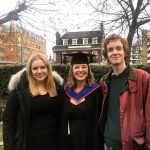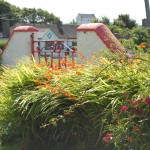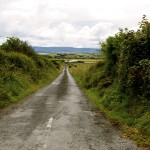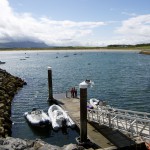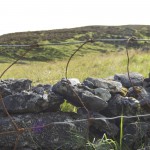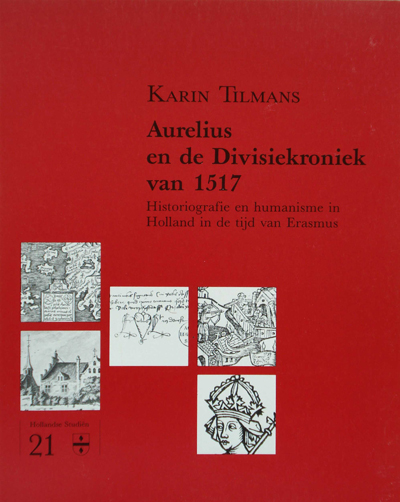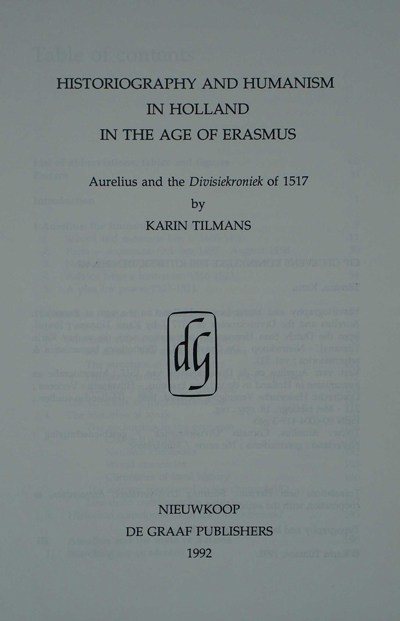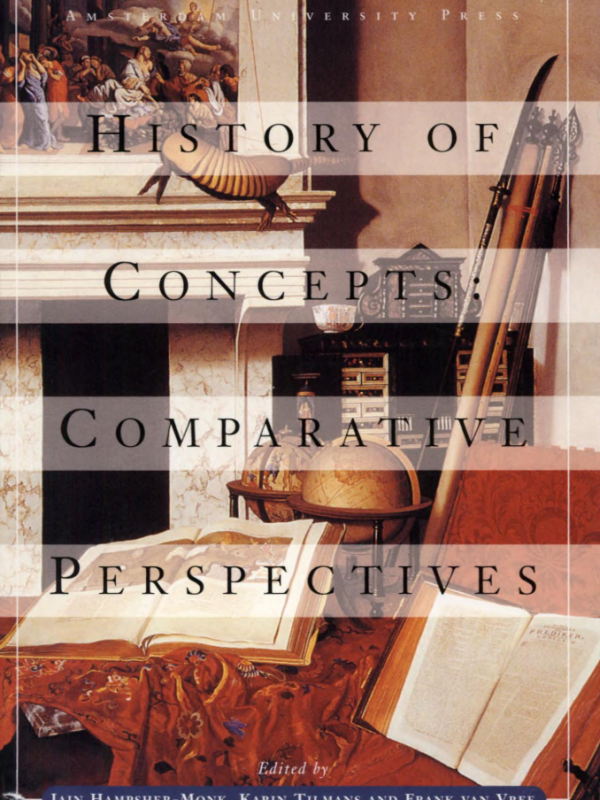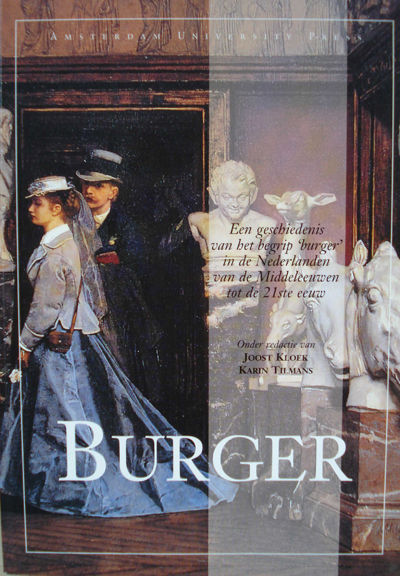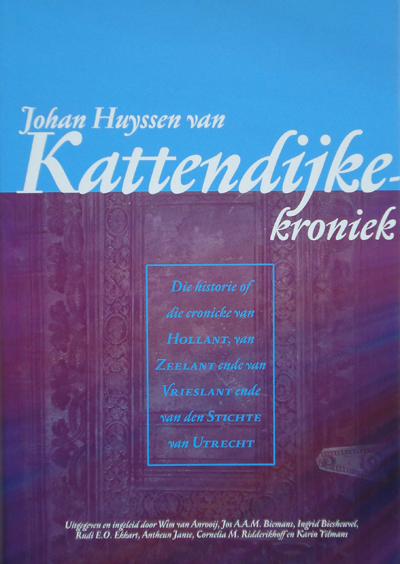Karin Tilmans
Catharina Tilmans
Medieval and Art Historian
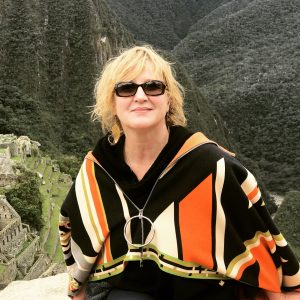
Biography
Karin Tilmans or Catharina Tilmans is a cultural historian, visiting fellow of the Department of History and Civilisation at the European University Institute, Florence, and currently coordinator of the Max Weber Programme for Post Doctoral Studies of the EUI. She trained as a medieval and art historian at the University of Groningen, in the Netherlands, where she defended her PhD in 1988 on Historiography and Humanism in the Time of Erasmus.
After a research fellowship in the Netherlands Institute for Advanced Studies in Wassenaar in the Spring of 1989 where she met her future husband Peter Mair, she became associate professor of medieval and early-modern history at the University of Amsterdam. There she taught from 1989 till 2008, and also part-time coordinated the Huizinga Institute, the Dutch Graduate School for Cultural History in the years 2001 till 2005. She published extensively on late-medieval and early modern historiography and humanism and explored the genesis and meaning of the Batavian myth in sixteenth century historiography of the Netherlands.
In 1992 a rare unique manuscript was brought to her attention, originating from the private library of Baron Johan Huyssen van Kattendijke. Together with a group of specialists she completed the integral and prestigious colour edition of this unique manuscript in 2005.
In the context of a comparative project on the history of concepts she spent another fellowship at the NIAS, in the academic year 1994-1995, out of which came the collective book History of Concepts: Comparative Perspectives (1998). For the Dutch History of Concepts Series she explored the concepts of fatherland and citizenship, both resulting in separate books in the Dutch Series. She participated in the ESF conferences and books on Republicanism: a shared European heritage, under the guidance of Martin van Gelderen and Quentin Skinner.
She is currently working on a comparative reserach project called “Towards a European History of Concepts”, together with Wyger Velema (University of Amsterdam).
She is an editor of the European Review of History/La Revue Europeenne d’Histoire, one issue of which appears each year as a special EUI researchers issue.
She lives in Florence, where her late husband Peter Mair was a professor of Comparative Politics, at the EUI.
Cathleen starts a PhD at Queen Mary University London in October while working freelance at the Idler Magazine London. John, an enthusiastic blogger, finished his degree at UCL with a first and the EISPS dissertation prize 2019 and Tessa starts her third year at Sussex University life sciences.
Education & Experience
- Entered university: 1975.
- Kandidaats (Bachelor´s degree): University of Groningen, awarded 20/06/1978. Classification: “cum laude” (with distinction).
- Doctoraal (Master´s degree): University of Groningen, awarded 25/06/1982.
- Main and subsidiary subjects: Mediaeval History, History of Art, Modern History. Classification: “cum laude” (with distinction). [NB: between 1979 and 1982 I studied for a second Master´s degree in History of Art, specialising in Mediaeval and Renaissance Art, under Prof. H. W. van Os.]
- Doctorate degree: University of Groningen, awarded 16/06/1988. Supervisors: Prof. R. Vaughan and Prof. A. H. Huussen Jr. Title of thesis: Aurelius en de Divisiekroniek van 1517. Historiografie en humanisme in Holland in de tijd van Erasmus (“Historiography and Humanism in Holland at the Time of Erasmus”).
- Research Assistant, University of Groningen, 1982-1988.
- Lecturer, University of Groningen and Universiteit van Amsterdam, 1988-1992.
- Lecturer and Post-doc Researcher, Universiteit van Amsterdam, since 01/09/1992.
- Associate Professor of Medieaval and Early Modern History, Universiteit van Amsterdam, Visiting Fellow Department of History and Civilization European University Institute Florence since 01/09/2005
- Student Researcher, Institute for History, University of Groningen, 1979-1982.
- Research Assistant, Institute for History, University of Groningen, 1982-1987.
- Course Coordinator and Education Officer for the Higher Education for the Elderly courses Introduction to History, Medieaval History and Dutch History , University of Groningen, 1988-1989.
- Tutor of Mediaeval History in the Faculty of Arts, University of Groningen, 01/09/1988 – 01/02/1989.
- Lecturer in Mediaeval History (0.5 FTE) in the Faculty of Arts, University of Groningen, 15/08/1989 –01/09/1992.
- Lecturer in the Department of Mediaeval History (19 hours a week), Faculty of Arts, Universiteit van Amsterdam, 01/09/1989 – 01/09/ 1992.
- Lecturer in the Department of Mediaeval History and Post-doc Researcher at the Institute for Cultural History (0.8 FTE), Faculty of Arts, Universiteit van Amsterdam, 01/09/ 1992 – 01/01/1997.
- Netherlands Organisation for Scientific Research (NWO) Post-doc Researcher in the Faculty of Humanities, Universiteit van Amsterdam, as part of the History of Concepts Project of the Huizinga Institute; Lecturer attached to the Mediaeval History Section (29 hours a week), 01/01/1997 – 01/03/2002. Title of project: “The Political Vocabulary of Early Dutch Humanism, 1450-1566: a study into the changing meanings of the key concepts ‘republiek’ and ‘burger’.”
- First-year lectures, Introduction to History, University of Groningen.
- Second-year lecture, “Political Theory in the Middle Ages and the Renaissance”, University of Groningen.
- Seminars, Political Theory, University of Groningen.
- Evening-class lecture in Mediaeval Studies, “Saints – an Everyday Support”, University of Groningen.
- Postgraduate seminars on “Erasmus”, “Court Culture” and “Matriarchy”, University of Groningen.
- Lectures, Higher Education for the Elderly (HOVON) courses Introduction to History, Mediaeval History and Dutch History , University of Groningen.
- Propaedeutic-year lectures and seminars, Mediaeval History, University of Groningen.
- Postgraduate lectures, History and Culture of the Low Countries 500-1500, Universiteit van Amsterdam.
- Postgraduate seminar, Political Theory in Renaissance Italy, Universiteit van Amsterdam.
- Postgraduate seminar, Burgundian Nation building and Historiography, Universiteit van Amsterdam.
- Postgraduate thematic lecture, “Political Theory and Utopia in the Middle Ages and the Renaissance”, University of Groningen.
- First-year lectures on Selected Topics, Cultural History, Universiteit van Amsterdam.
- Lectures, interdisciplinary courses on Renaissance Studies, Faculty of Arts and Faculty of Humanities, Universiteit van Amsterdam.
- Lectures, Historiography, Universiteit van Amsterdam.
- Lectures, Dutch History for Students of Archive Studies, Universiteit van Amsterdam.
- Evening-course lectures, European Cultural History for Art Historians (based upon Davis, Europe).
- Supervision of doctoral theses, University of Groningen and Universiteit van Amsterdam.
- Supervision of doctoral theses, Huizinga Institute.
- Participant in the European Science Foundation project “Republicanism: a shared European heritage”, headed by Quentin Skinner, Cambridge, since 1996.
- Member of the international History of Concepts Group founded in London in June 1998. Editor of this research group’s newsletter.
- Member of the history of concepts study group for “Republiek”, headed by Martin van Gelderen and Wyger Velema.
- Coordinator of the project “State and Status”, jointly with Ido de Haan (Utrecht University).
- Coordinator of the Kattendijke Project.
- Member of the Hagiographical Working Community between 1988 and its dissolution in 2000.
- Research Fellow, Netherlands Institute for Advanced Study in the Humanities and Social Sciences (NIAS), Wassenaar, 01/02/ 1989 – 01/09/1989.
- Research Fellow and member of the History of Dutch Concepts nucleus, Netherlands Institute for Advanced Study in the Humanities and Social Sciences (NIAS), Wassenaar, 01/09/ 1994 – 01/07/1995.
- Research Fellow, Political Science Department, European University Institute, Florence, 01/04/1998 – 01/07/1998.
- Member of the Organising Committee of the Internationale Agricola Congress, University of Groningen, 28-30 October 1985.
- Organiser and Arts Day Coordinator during National Science Week, University of Groningen, 11 October 1989.
- Co-organiser, Mediaeval History Platform Contact Days, NWO Mediaeval History Section, 1993-1996.
- Co-organiser of the workshop “From Past to the Present: themes of late-Mediaeval Dutch historiography”, International Mediaeval Congress, Leeds, 4-7 July 1994.
- Co-organiser, with Wyger Velema, of the workshops on the history of concepts for the Huizinga Institute, February 1997 and February 1998.
- Co-organiser of the “Burger” Symposium, Huizinga Institute, Amsterdam, 29-30 January 1999.
- Co-organiser of the master course in Mediaeval History, Faculty of Humanities, Universiteit van Amsterdam, 23 March 2001.
- Member of the Conference Committee for History of Concepts: International Conference of the Social and Political Concepts Group, Amsterdam, 19-21 June 2002.
- Co-organiser of the international PhD master course History of Concepts: Comparative Perspectives, Amsterdam, 18 June 2002.
- Co-organiser, in co-operation with Prof. Frank van Vree, of the international Huizinga conference Theatres of Memory – a Conference on Historical Culture, Amsterdam, 28-29 January 2004.
- Workshop “How national is cultural history nowadays” , European University Institute, 20-1-2006 (together with Jay Winter)
- Workshop “History and Memory: Towards a cultural history of the Great War”, European University Institute, 24/25-3-2006 (together with Jay Winter)
- Workshop “History and Memory”, European University Institute, 26-5-2006 (together with Jay Winter)
- Conference “Dutch Political Concepts: Comparative and International Perspectives. The Concept of Fatherland”, University of Amsterdam, 15/16-6-2006 (together with Wyger Velema)
- Katttendijke Symposium, in collaboration with the Institute for Netherlands History, The Hague, Gravenzaal Haarlem, 25-5-2005
- Member of the Executive Committee, Mediaeval History Working Community, NWO 1989 -1996.
- Member of the Executive Committee, Legenda Aurea Foundation, 1992-2000. Member of the Preparatory Committee for the Legenda Aurea exhibition at the Meermanno-Westreenianum Museum, The Hague, winter 1997.
- Member of the Research Committee, Faculty of Arts, Universiteit van Amsterdam, 1991-1997.
- Member of the Erasmus Scholarships Committee, Historical Seminary, 1991-1996.
- Member of the Coordinating Committee for the History of Concepts Project, Institute for Cultural History and Huizinga Instituut, since 1996. Coordinator and secretary for the meetings and contact person for the “Eer” group.
- Organiser and coordinator, jointly with Prof. Joost Kloek (Utrecht University), of the “Burger” multidisciplinary study group, Historyof ConceptsProject, Institute for Cultural History and Huizinga Institute, since 1996.
- Organiser and coordinator of the so-called Kattendijke study group – consisting of Dr A. Frank-Van Westrienen, Dr Jos Biemans, Dr Antheun Janse, Dr Wim van Anrooij and Dr Hans Smit (ING) – since 1998.
- Coordinator of the History of Concepts Newsletter published by the History of Social and Political Concepts Group.
- Member of staff of the Huizinga Institute, Research Institute and Graduate School for Cultural History.
- Editor of the journal Millennium, 1991-1997.
- Editor of the History of Concepts Newsletter, 1998-2001.
- Member of various doctoral degree assessment committees: Michiel van Gent (Leiden University), Jeanne Verbij (Leiden University), Frank Tang (Universiteit van Amsterdam).
- Reviewer of Netherlands Organisation for Scientific Research (NWO) grant applications for projects and publications.
- Publisher of the so-called Kattendijke-kroniek (“Kattendijke Chronicle”) of ca 1490, financed by the Maurits van Kattendijke Foundation, in cooperation with Dr Wim van Anrooij, Dr Jos Biemans and Dr Antheun Janse, in the Dutch Historical Publications series (RGP) from theInstitute for Dutch History (planned for 2004).
- Member of the Editorial Board of the Dutch History of Concepts Series.
- Member of the Board of the History of Social and Political Concepts Group.
- Member of the European editorial committee of the European Review of History/Revue Europeenne d’Histoire.
Books
Edited books
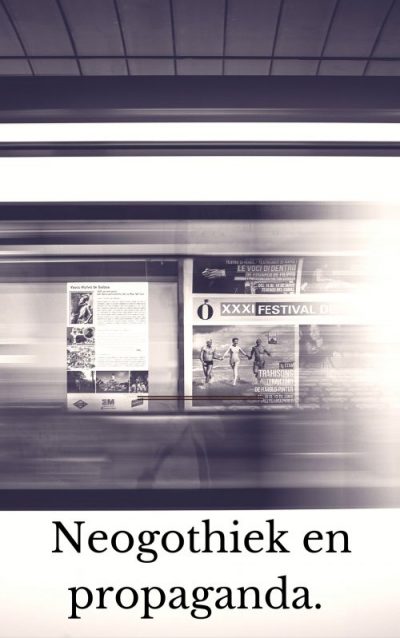
Neogothiek en propaganda. Exhibition catalogue. Groningen, 1979.
Articles
in books
“Cornelius Aurelius (Gouda c. 1460 – Dordrecht, 1531), praeceptor Erasmi?” In: F. Akkerman and A.J. Vanderjagt (eds.), Rodolphus Agricola Phrisius 1444-1485. Proceedings of the International Conference at the University of Groningen, 28-30 October 1985 (Leiden: Brill, 1988), 200-210.
“De Utopia van Sir Thomas More: man en vrouw in de beste staat.” In: Utopische voorstellingen van het sekseverschil (Groningen, 1988), 6-14.
“C.G. Aurelius.” Lemma in: Biografisch Woordenboek van Nederland III (The Hague, 1989), 17-19.
“De Hollandse kroniek van Willem Hermans op het spoor. Een Egmondse codex uit circa 1514.” In: Heiligenlevens, annalen en kronieken. Geschiedschrijving in middeleeuws Egmond (Hilversum, 1990), 169-193.
“Erasmus and Aurelius and their Lifes of Jerome: a study of cooperation and dependence.” In: Acta Conventus Neo-Latini Torontonensis. Proceedings of the Seventh International Congress of Neo-Latin Studies. Medieval and Renaissance Texts and Studies (Binghamton, New York, 1991), 755-768.
“Dutch National Consciousness in Early Humanist Historiography. The Italian influence on Cornelius Aurelius (c. 1460-1531) and his contemporaries.” In: Theo Hermans and Reinier Salverda (eds.), From Revolt to Riches. Culture and History of the Low Countries 1500-1700. International and Interdisciplinary Perspectives, Crossways Series, Volume 2 (London: Centre for Low Countries Studies, 1993), 30-40.
“Aeneas, Bato and Civilis, the Forefathers of the Dutch: the Origin of the Batavian Tradition in Dutch Humanistic Historiography.” In: Jean R. Brink and William F. Gentrup (eds.), Renaissance Culture in Context. Theory and Practice. (Oxford : Scholar Press, 1993), 121-135.
“La grande Chronique de la Hollande (1517): lieu de mémoire raté?” In: Pim den Boer and Willem Frijhoff (eds.), Lieux de Mémoire et Identités Nationales (Amsterdam UP, 1993), 113-121.
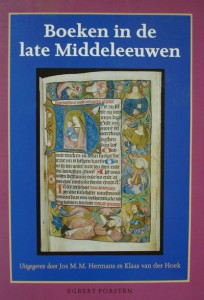 “De Kattendijke-kroniek: een uniek kopijmanuscript uit Haarlem.” In: J.M.M. Hermans and K. Verhoef (eds.), Boeken in de late Middeleeuwen. Verslag van de Groningse Codicologendagen 1992. Boekhistorische Reeks I (Groningen: Forsten, 1994), 183-200.
“De Kattendijke-kroniek: een uniek kopijmanuscript uit Haarlem.” In: J.M.M. Hermans and K. Verhoef (eds.), Boeken in de late Middeleeuwen. Verslag van de Groningse Codicologendagen 1992. Boekhistorische Reeks I (Groningen: Forsten, 1994), 183-200.
“Sancta mater versus sanctus doctus? Saint Anne and the Humanists.” In: A.B. Mulder-Bakker (ed.), Sanctity and Motherhood (San Francisco: Garland Press, 1995), 330-355.
“De oorsprong van het Duitse Rijk en de taken van de vorst: verwaarloosde Renaissance-vorstenspiegels in de Nederlanden.” In: A.H. Huussen Jr and B. Kempers (eds.), In Opdracht van de Staat. Opstellen over Mecenaaten Kunst vande Griekse Polis tot de Nederlandse Natie, Historische Studies III (Groningen: Egbert Forsten, 1994), 81-95.
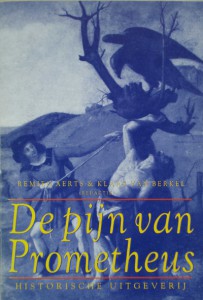 “De humanistische stedenmythe. Cultuurkritiek avant-la-lettre.” In: Remieg Aerts and Klaas van Berkel (eds.), De pijn van Prometheus (Groningen: Historische Uitgeverij, 1996), 68-84.
“De humanistische stedenmythe. Cultuurkritiek avant-la-lettre.” In: Remieg Aerts and Klaas van Berkel (eds.), De pijn van Prometheus (Groningen: Historische Uitgeverij, 1996), 68-84.
With Iain Hampsher-Monk and Frank van Vree: “A Comparative Perspective on Conceptual History – An Introduction”. In: History of Concepts: Comparative Perspectives (Amsterdam UP, 1998), 1-11.
“Koningen in de Kattendijke-kroniek.” In: R.E.V. Stuip and C. Vellekoop (eds.), Koningen in Kronieken (Hilversum: Verloren, 1998), 181-205.
“Het ontstaan van het vaderland-begrip in de laat-middeleeuwse en vroeg-moderne geschiedschrijving van de Nederlanden.” In: N.C.F. van Sas (ed.), Vaderland, Begripshistorische Reeks part 1 (Amsterdam UP, 1999), 7-55.
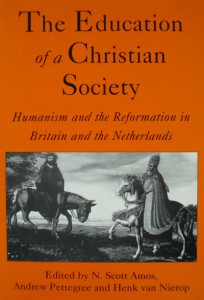 “From Institutio to Educatio: on the origin of political education in the Habsburg Netherlands.” In: N. Scott Amos, Andrew Pettegree and Henk van Nierop (eds.), The Education of a Christian Society: Humanism and Reformation in Britain and the Netherlands (Ashgate, 1999), 41-62.
“From Institutio to Educatio: on the origin of political education in the Habsburg Netherlands.” In: N. Scott Amos, Andrew Pettegree and Henk van Nierop (eds.), The Education of a Christian Society: Humanism and Reformation in Britain and the Netherlands (Ashgate, 1999), 41-62.
“Republican citizenship and Civic Humanism in the Burgundian-Habsburg Netherlands (1477-1566).” In: Martin van Gelderen and Quentin Skinner (eds.), Republicanism. A European Heritage, 2 vols., Ideas in Context (Cambridge UP, 2002), volume I, 107-127.
With Joost Kloek: “Inleiding.” In: Burger. Geschiedenis van het begrip van de Middeleeuwen tot de Eenentwintigste Eeuw (Amsterdam, 2002).
“Republikeins burgerschapen civic humanism in deBourgondisch-Habsburgse Nederlanden (1477-1566).” In: Burger. Geschiedenis van het begrip van de Middeleeuwen tot de Eenentwintigste Eeuw (Amsterdam, 2002), 79-97.
With Freya Sierhuis: “Respublica as UtopiainSixteenth Century – Political Thought in the Netherlands.” In: Martin van Gelderen and Wyger Velema, Republic. History of the Concept in the Netherlands (to be published).
“De Johan Huyssen van Kattendijke-kroniek. Geschiedenis en belang van de uitgave” In: Johan Huyssen van Kattendijke-kroniek. Die historie of die cronicke van Hollant, van Zeelant ende van Vrieslant ende van den Stichte va Utrecht. RGP Kleine Serie 102, Instituut voor Nederlandse Geschiedenis, Den Haag, 2005, X-XX.
“The Johan Huyssen van Kattendijke chronicle. History and significance of the present edition” In: Johan Huyssen van Kattendijke-kroniek. Die historie of die cronicke van Hollant, van Zeelant ende van Vrieslant ende van den Stichte van Utrecht. RGP Kleine Serie 102, Instituut voor Nederlandse Geschiedenis, Den Haag, 2005, 621-627. (summary)
“The DUTCH as BATAVIANS. The take-off of a new national discourse”, to appear in Hans Boedeker and Ivo Comparato, Myths of Republicanism (Goettingen/Perugia, 2007)
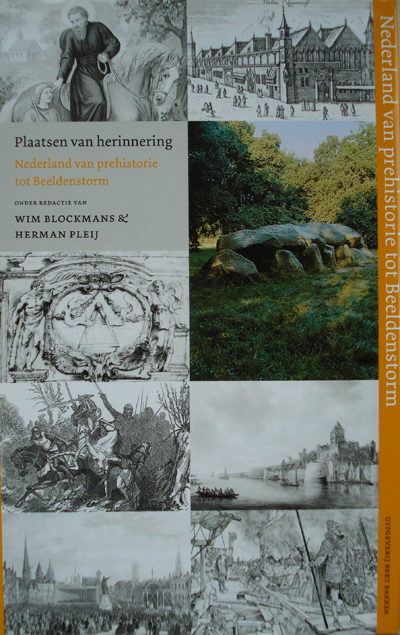 “Julius Civilis en de opstand der Bataven” Plaatsen van Herinnering. De Middeleeuwen. Onder redactie van Wim Blockmans en Herman Pleij. Amsterdam, Bert Bakker/ Prometheus, 2007.
“Julius Civilis en de opstand der Bataven” Plaatsen van Herinnering. De Middeleeuwen. Onder redactie van Wim Blockmans en Herman Pleij. Amsterdam, Bert Bakker/ Prometheus, 2007.
in journals
“De Hollandse kroniek van Willem van Berchen.” Holland. regionaal-historisch tijdschrift 16, 2 (1984), 101-120.
“De overgang van schrijven naar drukken.” Groniek. Historisch Tijdschrift 87 (1984), 64-69.
“De zucht naar schoner leven in de Divisiekroniek.” Groniek. Historisch Tijdschrift 93 (1985), 164-177.
“De Bourgondische dreiging en de vijftiende-eeuwse geschiedschrijving in Gelre: 3/4 (1988), 55-67.
“Holländisches Nationalbewusstsein in der früh-humanistischen Historiographie.” Wolfenbütteler Renaissance Mitteilungen XIII, 2 (1989), 61-68.
“’Authentijck ende warachtig.’ De stedenmythe in de Hollandse geschiedschrijving: van Beke tot Aurelius.” Holland. regionaal-historisch tijdschrift XXI, 2 (April 1989), 68-87.
“Vroeg-renaissancistische vorstenspiegelsinhet Noordenvan de Nederlanden: dankzij of ondanks maecenaat?” Theoretische Geschiedenis 16.4 (autumn 1989), 421-431.
“The origin of the empire and the tasks of the prince: neglected renaissance mirrors-of-princes in the Netherlands.” Humanistica Lovaniensia. Journal of Neo-Latin Studies Vol. XL (1991), 43-72.
“Tussen hemel en hel: Dantes visie op het hiernamaals.” Groniek. Historisch Tijdschrift 117 (1992), 31-47.
“Het probleem van het Hollandse zelfbeeld voor Erasmus en zijn tijdgenoten.” De Gids 156 no. 2 (February 1993), 151-156.
“Historische antropologie, sociologie of cultuurgeschiedenis. De Renaissance visie van Peter Burke.” Theoretische geschiedenis 20.3 (1993), 291-301.
“De Trojaanse mythe voorbij. Of: waarom de Kattendijke-kroniek alleen door Bockenberg opgemerkt werd.” In: W. Bergsma, J. Frieswijk, L.G. Jansma and G.H. Jelsma (eds.), Mythe en geschiedschrijving in Nederland en Friesland. Themanummer It Beaken 56, no. 2/3 (1994), 188-211.
“Chroniqueurs en kroniekschrijvers. Over de waardering van Nederlandse geschiedschrijvers in Huizinga’s Herfsttij.” ”Huizinga 1995” themed edition of: Arnold Labrie, Solange Leibovici and Ton Hoenselaars (eds.), Themanummer Bulletin: Geschiedenis Kunst Cultuur IV. 3 (1995), 50-69.
“De ontwikkeling van een vaderland-begrip in de laat-middeleeuwse en vroeg-moderne geschiedschrijving van de Nederlanden.” Theoretische Geschiedenis. Beelden Begrippen Ideeën 23.1 (1996), 77-110.
“Applying Begriffsgeschichte to Dutch History. Some remarks on the practice and the future of a project.” Contributions to the History of Concepts 2.1 (2006) pp. 43 – 59 ( met Wyger Velema)
in other
“God en de Alpen. Het Zwitserse volkslied.” De Volkskrant Saturday supplement (20 August 1988), 5.
“Cornelius Aurelius: un Mantuanus Olandese?” Sassoferrato proceedings 1990.
“De Bataafse mythe”. Intermediair 25, 47 (November 1989), 49-55.
Heen en Weer. Brochure for the Arts Day of National Science Week, 11 October 1989 (Groningen/Meppel, 1989).
“’Door mij gaat men binnen in een stad van pijn’: Dante Alighieri’s Goddelijke Komedie”. Intermediair 18 (3 May 1991), 53-57.
“Von Heiligen, einem Humanisten und einer Königin. Aktuelle Themen der niederländischen Frauenforschung.” Neue Zürcher Zeitung no. 229, literature and arts supplement (Saturday 2/Sunday 3 October 1993), 70.
“The research group on the concept of citizenship in the Low Countries: preliminary results.” History of Concepts Newsletter no. 2 (summer 1999), 11-16.
“Het historisch geheugen. Tussen herinnering en geschiedenis” Eva 5 (2006) 56-57
Reviews
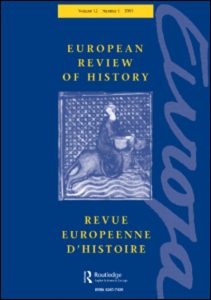 “Marketing Maximilian. The Visual Ideology of a Holy Roman Emperor” European Review of History – Revue Europeenne d’Histoire17.6 (2010) 909-911.
“Marketing Maximilian. The Visual Ideology of a Holy Roman Emperor” European Review of History – Revue Europeenne d’Histoire17.6 (2010) 909-911.
“De Tielse kroniek.” Tijdschrift voor Geschiedenis 98 (1985), 89-90.
“Geert Grote en de Moderne Devotie.” Tijdschrift voor Theoretische Geschiedenis 13, 3 (1986), 421-424.
“Het Costerverhaal opnieuw verteld.” Bijdragen en Mededelingen betreffende de Geschiedenis der Nederlanden 104, 3 (1989), 425-426.
“De doorwerking van deModerne Devotie.” Theoretische Geschiedenis 18, 1 (1991), 75-77.
“ Via antiqua versus via moderna? Naar aanleiding van twee recente handboeken over de Middeleeuwen.” Theoretische Geschiedenis 18, 2 (1991), 163-170.
“Recensie van A.L.H. Hage, Sonder favele, sonder lieghen. Onderzoek naar vorm en functie van de Middelnederlandse rijmkroniek als historiografisch genre.” Bijdragen en Mededelingen betreffende de Geschiedenis der Nederlanden 106, 3 (1991),490-492.
“Recensie van J.G. Jaspers, De blokboeken en incunabelen in Haarlems Librye.” Bijdragen en Mededelingen betreffende de Geschiedenis der Nederlanden 106, 2 (1991), 267-268.
“Recensie van W.M.C. Wüstefeld, De boeken van de Grote of Sint Bavokerk. Een bijdrage tot de geschiedenis van het middeleeuwse boek in Haarlem (Hollandse Studiën XXIV; Verloren: Hilversum, 1989).” Bijdragen en Mededelingen betreffende de Geschiedenis der Nederlanden 107, 2 (1992), 323-324.
“Recensie van T. Brandenbarg, Heilig familieleven. Verspreiding en waardering van de Historie van Sint-Anna in de stedelijke cultuur in de Nederlanden en het Rijnland aan het begin van de moderne tijd (15de/16de eeuw) (Nijmegen: SUN, 1990).” Bijdragen en Mededelingen betreffende de Geschiedenis der Nederlanden 107, 3 (1992), 518-519.
“Recensie van Catrien Santing, Geneeskunde en humanisme. Een intellectuele biografie van Theodericus Ulsenius (c. 1460-1508) (Rotterdam: Erasmus Publishing, 1992).” Millennium. Tijdschrift voor Middeleeuwse Studies VII, 1 (1993), 81-82.
“Recensie van P.J.A. Franssen,Tussen tekst en publiek.Jan vanDoesborch, drukker-uitgever en literator te Antwerpen en Utrecht in de eerste helft van de zestiende eeuw (Dissertatie UniversiteitvanAmsterdam 1990; Amsterda/Atlanta, GA: Rodopi, 1990).” Bijdragen en Mededelingen betreffende de Geschiedenis der Nederlanden 108, 2 (1993), 254-256
“Recensie van R.J. Schoeck, Erasmus of Europe. The making of a humanist 1467-1500 (Edinburgh UP, 1990)”. Tijdschrift voor Geschiedenis 106, 4 (1993) , 599.
“Recensie van W. Verbeke e.a., red., Serta Devota in Memoriam Guillelmi Lourdaux. Pars prior: Devotio Windeshemensis. Mediaevalia Lovaniensia, series I, studia XX (Leuven UP, 1992).” Tijdschrift voor geschiedenis 107, 2 (1994), 286-287.
“Recensie van Frits van Oostrom, Aanvaard dit werk. Over middelnederlandse auteurs en hun publiek (Amsterdam: Prometheus, 1992).” Bijdragen en Mededelingen betreffende de Geschiedenis der Nederlanden 109, 2 (1994), 336.
“Recensie van K. Goudriaan e.a., red., Een drukker zoekt publiek. Gheraert Leeu te Gouda 1477-1484 (Verzameling bijdragen oudheidkundige kring ‘Die Goude’ XXIII; Delft: Eburon, 1993).” Bijdragen en Mededelingen betreffende de Geschiedenis der Nederlanden 109, 3 (1994), 551-552.
“Recensie van J.F. Verbruggen, De slag bij Guinegate 7 augustus 1479. De verdediging van het graafschap Vlaanderen tegen de koning van Frankrijk 1477-1480 (Brussel, 1992)”. Bijdragen en Mededelingen betreffende de Geschiedenis der Nederlanden 109, 3 (1994), 552-553.
“Recensie van L. Vandamme e.a, red., Schatten uit de Biekorf. Europese cultuur inpostincunabelen 1501-1540 (Brugge, 1992).” Bijdragen en Mededelingen betreffende de Geschiedenis der Nederlanden 109, 3 (1994), 553.
“Recensie van J.M. Willemeur-Schalij, red., De brieven uit ‘Der rechte Wech’ van de Oisterwijkse begijn en mystica Maria van Hout (+Keulen 1547) (Leuven, 1993).” Bijdragen en Mededelingen betreffende de Geschiedenis der Nederlanden 109, 3 (1994), 555.
“Recensie van G. Tournoy, J. Roegiers, C. Coppens, red., Vives te Leuven. Catalogus van de tentoonstelling in de Centrale Bibliotheek teLeuven 28 juni-20 augustus 1993 (Leuven, 1993).” Bijdragen en Mededelingen betreffende de Geschiedenis der Nederlanden 109, 4 (1994), 706.
“De eeuwige stad Rome. Recensie van Philip Jacks, The antiquarian and the myth of antiquity. The origins of Rome in renaissance thought (Cambridge UP, 1993).” Tijdschrift voor Geschiedenis 108, 2 (1995) 245-246.
“Beeldvorming in Holland. Naar aanleiding van Jeanne Verbij-Schillings, Beeldvorming in Holland. Heraut Beyeren en de historiografie omstreeks 1400 (Amsterdam, 1995).” Queeste. Tijdschrift over Middeleeuwse Letterkunde IV, 1 (1997), 95-96.
“Koloniale rituelen. Recensie van Patricia Seed, Ceremonies of possession in Europe’s conquest of the New World, 1492-1640 (Cambridge, 1995).” Tijdschrift voor Geschiedenis 110, 4 (1997), 583-584.
“De cultus van de Negen Besten. Recensie van Wim van Anrooij, Helden van weleer. De Negen Besten in de Nederlanden (1300-1700) (Amsterdam UP, 1997).” Bijdragen en Mededelingen betreffende de Geschiedenis der Nederlanden 114, 4 (1999), 562-563.
“Recensie van Remieg Aerts en Henk te Velde (red.), De stijl van de burger. Over Nederlandse burgerlijke cultuur vanaf de middeleeuwen (Kampen: Kok Agora, 1998).” Theoretische Geschiedenis 26, 3 (1999), 406-408.
“Teksten als koopwaar: vroege drukkers verkennen de markt: een kwantitatieve analyse van de productie van Nederlandstalige boeken (tot circa 1550) en de ‘lezershulp’ in seculiere prozateksten, Peter M.H. Cuijpers (Nieuwkoop, 1998).” The Sixteenth Century Journal XXXI/2 (2000), 513-514.
“The canon revisited? Naar aanleding van Janet Coleman’s A History of Political Thought From Antiquity to the Renaissance.” Tijdschrift voor Geschiedenis 114.3 (2001) 422-437
“’Hollands voorsprong.’ Nav Geschiedenis van Holland, red. Thimo de Nijs en Eelco Beukers, 3 dln (Hilversum, 2002/2003).” Reformatorisch Dagblad books supplement (3 September 2003), 15
Karin Tilmans, recensie van S. Bogaart, Geleerde kennis in de volkstaal. Van den proprieteyten der dinghen (Haarlem 1485) in perspectief (Dissertatie Nijmegen 2004, Artesliteratuur in de Nederlanden IV; Hilversum: Verloren, 2004, 252 blz, ISBN 90 6550 815 5). Bijdragen en Mededelingen tot de Geschiedenis van de Nederlanden 121.3(2006) 488-490.
“Translating the Past : Laurent de Premierfair and Boccaccio’s De Casibus” European Review of History 18.4 (2011) 574-576
“Michelangelo: A Tormented Life” European Review of History 18.4 (2011) 577-579
“Nuns and Nunneries in Renaissance Florence” European Review of History 18.4 (2011) 579 -581
“Gallbeert of Bruges and the Historiography of Medieval Flanders” European Review of History 18.5/6 (2011) 861-862
Presentations
“De rijmkroniek van Klaas Kolijn.” Truth and Fiction in the Middle Ages study day, University of Groningen, November 1984.
“Aurelius, praeceptor Erasmi.” International Agricola Conference, University of Groningen, October 1985.
“Een nieuwe wereld, een nieuw beeld?” The Mediaeval World View study day, University of Groningen, January 1987.
“De politieke tendens van de Divisiekroniek.” Congress of the Netherlands Historical Society, National Library of the Netherlands, The Hague, 13 April 1987.
“Holländisches Nationalbewusstsein in der frühhumanistischen Historiographie: Cornelius Aurelius und seine Zeitgenossen.” Humanism and Reception of Classical Antiquity Symposium of the University of Bremen, 24-25 May 1988.
“Erasmus and Aurelius and their Lifes of Jerome: a study into cooperation and dependence.” VIIth International Congress of the Association for Neolatin Studies, Toronto, 8-13 August 1988.
“Mens en Kosmos in de Middeleeuwen: het wereldbeeld van Dante.” National Science Week Open Day, University of Groningen, 15 October 1988.
“Hemelse en Helse vrouwen: vrouwenbeelden rond 1500.” Lecture in the series Saints, an Everyday Support, for the Department of Mediaeval Studies, University of Groningen, 17 November 1988.
“De Utopia van Thomas More: Man en Vrouw in de beste staat.” Utopias Day, University of Groningen, 25 November 1988.
“Van de wieg tot het graf: leren in historisch perspectief.” Lecture, Volksuniversiteit Groningen, 9 March 1989.
“Dutch national consciousness in the early humanist historiography: the Italian influence on Cornelius Aurelius (ca. 1460-1531) and his contemporaries.” The Low Countries and the World Conference, University College London, 12-15 April 1989.
“Renaissance vorstenspiegels in de Noordelijke Nederlanden: dankzij of ondanks maecenaat.” Patronage, Mentality and Nation building Workshop, Department of History, University of Groningen, 26 May 1989.
“Aeneas, Caesar and Bato: Myths about the Dutch past in the Middle Ages and early Renaissance.” Lecture, Netherlands Institute for Advanced Study in the Humanities and Social Sciences (NIAS), 29 June 1989.
“From Gansfortto Hoen: the origin of the Dutch Sacramantarian movement.” Gansfort Congress, University of Groningen, 28 August 1989.
“Aurelius’ Libellus de Patientia.” Neolatinists’ Day, Amsterdam, 16 September 1989.
“Wonderen in de Divisiekroniek. De ‘pouvoir informel’ van Geertrui van Oosten.” Balance and Perspective Congress, Utrecht, 11 October 1989.
“Mens en kosmos in de Middeleeuwen.” History of Art lecture, University of Groningen, 3 March 1989.
“De historie verbeeld? De illustraties in de Divisiekroniek.” Lecture, Amsterdam Mediaevalists’ Circle, 6 May 1990.
“The origin of the empire and the tasks of the prince: neglected renaissance mirrors-of-princes in the Netherlands.” Presentation, 25th International Conference of Medieval Studies, Kalamazoo, 11 May 1990.
“The origin of the Batavian tradition in Dutch humanistic historiography.” Presentation, European Renaissance: National Traditions Conference (congress of the Arizona Center for Medieval and Renaissance studies), Glasgow, 8-11 August 1990.
With Marina Warner: “The informal power of a Delft beguine: the life of Geertrui van Oosten.” Lecture during the study day on “The Informal Circuit: influence and charisma in the margins of Mediaeval power structures”, University of Groningen, 25 January 1991.
“De rol van de volkstaal in de Middeleeuwse geschiedschrijving vande Nederlanden.”Lecture, ELTE Nederlandisztikai Központ, Budapest, 26 April 1991.
“Het Frankmanuscript als voorbeeld van grensoverschrijdend onderzoek.” Presentation at the Across Borders Symposium of the Culture and Society During the Transition from the Middle Ages to the Modern Era, Agnietenkapel, Universiteit van Amsterdam, 29 November 1991.
“La Grande Chronique de la Hollande: lieu de mémoire raté?” Franco-Dutch symposium, Places of Memory and National Identity in France and the Netherlands, Dutch Institute, Paris, 11-13 May 1992.
“Tussen handschrift en druk: het Kattendijke-manuscript (ca. 1490).” Groningen Codicologists’ Days international conference, 7-9 October 1992.
“Sancta mater versus sanctus doctus? De H. Anna en de humanisten.” Holy Mothers conference, Museum of Religious Art, Uden, 17 October 1992.
“Mythe en geschiedschrijving in Holland.“ Myth and Historiography in the Netherlands and Friesland study day, Frisian Academy, Leeuwarden, 18 December 1993.
“A unique embodiment of the shift from script to print: the newly discovered Kattendijke chronicle.” First International Medieval Congress, University of Leeds, 3-7 July 1994.
“Chroniqueurs en Kroniekschrijvers. Over de waardering van Nederlandse geschiedschrijvers in Huizinga’s Herfsttij.” Presentation at the symposium 75 Years of Herfsttij, Amsterdam, 21 March 1995.
“Patria and Civitas: towards a conceptual history of the early-modern Low Countries”. Presentation at the Kalamazoo conference, 5-10 May 1995.
“Myths of origin and republican discourse in the Habsburg Netherlands: 1482-1566.” Paper to the ESF conference Republicanism: a European Heritage, Perugia, 14-18 April 1997.
“From Institutio to Educatio: the originof education as a political concept in the Habsburg Netherlands.” Paper to the XIIIth Anglo-Dutch Conference, Saint Andrews, 1-4 September 1997.
With Wyger Velema: “Applying Begriffsgeschichte to Dutch History: some remarks on the Concepts of Liberty and Fatherland.” Paper to the Conceptual Changes in European Political Cultures Conference, London, 18-20 June 1998.
“Republikeins burgerschap en civiel humanisme in de Bourgondisch-Habsburgse Nederlanden 1477-1566.” Huizinga Institute “Burger” Conference, Amsterdam, 29-30 January 1999.
“Respublica, Community and Institution: the concept of republic in Bruges before the Revolt.” Huizinga Institute “Republiek” Conference, Amsterdam, 22-24 April 1999.
“Het beslissende boek: Fulco de Minstreel van C. Johan Kieviet.” Great History Day, Universiteit van Amsterdam, 27 September 2000.
“Het Kattendijke-manuscript: een uniek boek uit Haarlem.” Presentation at the symposium The Transition from the Manuscript to the Printed Book, Huizinga Institute, Amsterdam, 24 November 2000.
“Mens en kosmos in de Middeleeuwen.” Mediaeval History Master Course, Faculty of Humanities, Universiteit van Amsterdam, 23 March 2001.
Commentary on Terence Ball’s Confessions of a Conceptual Historian, Conference of the History of Social and Political Concepts Group, Tampere, 28-30 June 2001. Organiser and chair of the panel Classics of Political Thought.
“The concept of citizenship in the Netherlands.” Bilboa, Conference of the History of Social and Political Concept Group, Bilbao, 30 June-2 July 2003.
Karin Tilmans , Concepts and Comparisons : Comparative Conceptual History in Germany and Holland Departmental seminar History and Civilisation, European University Institute Fiesole , 9-XI-2005.
Webpublications
The concept of the citizen in the early-modern Netherlands, 1400-1700
De Divisiekroniek van 1517. Editor: Karin Tilmans
Uitgave van het Bourgondische-Habsburgse deel (divisie 1-32).
The Kattendijke Chronicle (ca. 1491): a unique manuscript, possibly from Haarlem
In 1991 Mrs A. Frank-van Westrienen drew my attention to a very rare manuscript which was in the possession of the family of her son-in-law, Baron Huyssen van Kattendijke, in London. The manuscript, which had been unstudied while in the family’spossession, contains a chronicle in the vernacular dating back to the late 15th century, entitled Die historie of die cronicke van zeelant ende van vrieslant ende vanden stichte van wtrecht en de van veel landen diemen hier na nomen sal (The history of this chronicle of Holland, Zealand and Friesland and of the founding of Utrecht and of many lands which will be mentioned later).
Cornelius Aurelius, Libellus de Patientia (1524, MS Leiden UL, Vulc. 66, ff. 45-57v). Editor: Karin Tilmans
The treatise Libellus de Patientia was written by Cornelius Aurelius in 1524 after his short imprisonment onthe suspicion of lutheran sympathies. He sent the manuscript that same year to his friend, the Hague lawyer and Sacramentarian Cornelis Hoen who was imprisoned in The Hague for heresy. The short treatise is a fine example of neo-stoicism in the early sixteenth century Northern Netherlands.
Revised edition, by Samantha James in 2013 as part of her MA Thesis, supervised by Dr. Chris Nighman for the Tri-University History Graduate Program.
De foelice et infoelice republica, ad senatum Brugensem. Editors: Karin Tilmans en Freya Sierhuis
In the so-called Miracle Year of 1566, a treatise appeared in Louvain under the title De foelici et infoelice republica, ad senatum Brugensem. It was written by the lawyer and legal adviser to that same senate, Frans Goethals, and printed by Johannes Bogardus. The treatise of Goethals is a fine example of classic republicanism with a strong economic and legal argument. In its radical plea for republicanism and popular education the ideological weight of Goethals’s De foelice et infoelice republica can hardly be overestimated.
Karin Tilmans, “The concept of the Dutch citizen” in: Resdescriptions. Yearbook of Political Thought and Conceptual History. Volume 8 (2004) 146-171
Much has been and continues to be written about burghers in the Netherlands, but few of these studies concern conceptual history. The fine collective studies in De stijl van de burger (Aerts and Te Velde 1998) and Beschaafde burger: Burgerlijkheid in de vroegmoderne tijd (Hendrix and Meijer Drees 2000) are recent manifestations of this ongoing interest, which is present in the Netherlands as well. Both collections deal mainly with bourgeois culture in the Netherlands after 1500. The volume in conceptual history about the Dutch burgher concept, – the fourth in the Dutch series on conceptual history published by Amsterdam University Press – of which the present article gives an overview, is inspired first and foremost by German studies, especially the collections Bürgerschaft. Rezeption und Innovation der Begrifflichkeit vom Hohen Mittelalter bis ins 19. Jahrhundert (Koselleck and Schreiner 1994), and Bürgertum. Bürger in der Gesellschaft der Neuzeit (Puhle 1991). The concepts of ‘Bürger’ in the Geschichtliche Grundbegriffe (Brunner 1992) and citoyen-sujet-civisme in the Handbuch politisch-soziale Grundbegriffe in Frankreich 1680-1820 (Book 9) were other models for a diachronous national conceptual history. With all due respect for the German project on conceptual history, we have elected to pursue our own Dutch course, like our predecessors in Vaderland (Van Sas 1999), Vrijheid (Haitsma Mulier and Velema 1999) and Beschaving (Den Boer 2001), although our research starts well from the Middle Ages and considers even the twenty-first century. Moreover, the contributions are not written from a historic perspective only, but also from the perspective of Dutch linguistics,history of law and art history
Applying Begriffsgeschichte to Dutch History: Some Remarks on the Practice and Future of a Project
This article is a progress report on the Dutch national conceptual history project. The project places emphasis on interdisciplinarity, the resort to the widest possible range of sources, and the prospect of international comparison. The initiative, started by a group of Dutch scholars in the 1990s, has so far focused on the concepts of liberty, fatherland, and citizenship, all of which have had a prominent role in a specifically Dutch political discourse.
The Batavians: Mythical fathers of Dutch republicanism origin of a new national discourse
Ever since Ivo Schöffer wrote his article ‘The Batavian myth in the 16th/17th century’ it has been very well known that the Dutch used this myth of origin as a legitimation of their revolt against Spain (Schöffer 1975). Rembrandt’s painting “The conspiration of Julius Claudius Civilis” (1661) was the centrepiece in the 17th century cityhall, the present Royal Palace, of Amsterdam. But what is not very well known, and what is more of an antiquarian misconception, a notion which up to the present day proves very difficult to challenge, is the major conceptual shift which this myth brought about from its very beginning in the first decade of the 16th century. This article investigates the origin of what can be considered a new national discourse in the sixteenth centry
Towards a European History of Concepts
The Dutch conceptual history project has been generously received by academic critics, who have praised it for charting a territory in Dutch history that had so far remained largely unexplored. Yet several reviewers of the first volumes of the project, stressed the need to further explore and develop the international and comparative dimensions of Dutch conceptual history. This suggestion is entirely justified and could be further extended to include other existing projects in conceptual history, for they all tend to write the history of concepts primarily in a national context. The intention of the current special issue, “Towards a European History of Concepts”, is to begin to remedy this situation by placing the findings to date of the Dutch project in a European context. Such a publication not only benefits Dutch conceptual history, but also the conceptual history research being currently carried out in other European countries.

